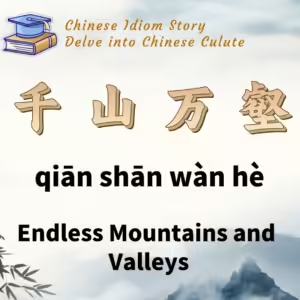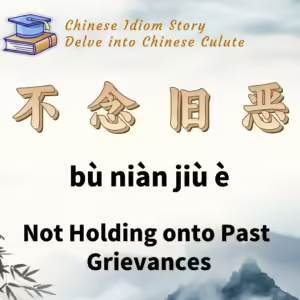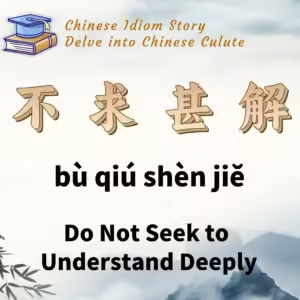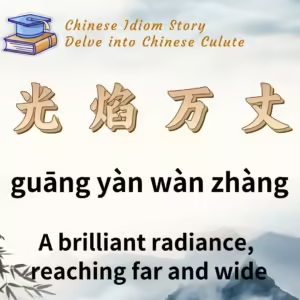
Chinese Idiom: 千山万壑 (Qian Shan Wan He)
English Translation: Endless Mountains and Valleys
pīn yīn: qiān shān wàn hè
Idiom Meaning: Describes a landscape with a continuous range of mountains and overlapping valleys.
Historical Source: Gonghuai Guji (《咏怀古迹》), by Du Fu, Tang Dynasty, Poem III.
Idiom Story:
In 766 AD, the famous Tang Dynasty poet Du Fu wrote a series of five poems titled Gonghuai Guji (“Ode to Ancient Relics”) in Kuizhou. These poems not only describe ancient relics and reminisce about the past but also express Du Fu’s personal feelings and aspirations. The third poem in the series is dedicated to Wang Zhaojun, and it reflects the poet’s own sentiments about his situation.
Wang Zhaojun, originally named Wang Qiang, was a palace maid during the reign of Emperor Yuan of the Han Dynasty. During the Western Jin Dynasty, due to a taboo regarding Sima’s name, she was also known as Ming Fei. According to historical records, the Xiongnu, a powerful northern tribe, frequently harassed the Han Dynasty’s borders. To manage this, the Han Dynasty employed a strategy of military campaigns and diplomatic marriages. In 33 BC, the Xiongnu chieftain Huhanxie requested a marriage alliance, and Emperor Yuan sent Wang Qiang to him. After Emperor Cheng ascended the throne, Wang Qiang requested to return but was not allowed, and she died in the Xiongnu lands.
Du Fu’s poem Ode to Wang Zhaojun vividly describes the landscape and Wang Zhaojun’s fate. The poem portrays a vast, undulating terrain of mountains and valleys leading to Jingmen and Ziguo, where Zhaojun’s homeland is located. It reflects on her departure from the Han court to the remote Xiongnu, her unfulfilled longing for her homeland, and the bitter legacy she left behind. The poem laments how the Emperor Yuan’s reliance on portraits for identifying palace maids led to Wang Zhaojun’s regretful fate. Despite her death in a foreign land, her sadness resonates through the music of the Xiongnu people, which carries her sorrowful thoughts across the ages.
The phrase “群山万壑赴荆门” (“Endless mountains and valleys stretch towards Jingmen”) from Du Fu’s poem was later simplified to “千山万壑” (Endless Mountains and Valleys), capturing the essence of a landscape characterized by numerous, interlocking mountains and valleys.






